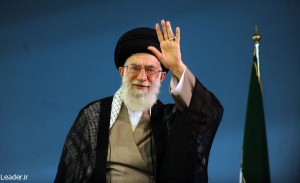Neocons won’t give up on involving the U.S. in more Mideast wars and are hard at work derailing negotiations on Syria and Iran’s nuclear program. Right now, the chief target is President Obama’s bid to reduce tensions with Iran, drawing resistance from hardliners on both sides, writes ex-CIA analyst Paul R. Pillar.
By Paul R. Pillar
Despite the many and obvious differences between the United States and Iran as the two countries take tentative baby steps toward a less destructive relationship, there also are some striking symmetries in taking those steps. Policymakers on both sides want an agreement to resolve differences over Iran’s nuclear program, are wary or even skeptical about achieving such an agreement, but are nonetheless trying to negotiate one.
Both sets of policymakers are having to deal with resistance from hardliners on their own side who would not welcome an agreement. Both are having to fend off accusations that they would be giving up too much in negotiations. For both, the task of managing the hardliners on their own side is made all the more difficult by the statements, and sometimes actions, of hardliners on the other side.
The Obama administration, to its credit, recently has been investing some high-level lobbying time in an effort to stave off a move in Congress to add still more sanctions against Iran to the mountain of them already in place. Such a move would undermine the negotiating effort and reduce the chance of reaching an agreement.
It would be a slap-in-the-face response to recent positive movement on the Iranian side and be taken by many Iranians as another indication that the United States does not really want a deal and instead is just stalling for time while sanctions wreak more damage on the Iranian economy.
The Iranian supreme leader, Ayatollah Ali Khamenei, is making corresponding efforts to stave off efforts by the hardliners on his side to undermine the negotiations. This was clearly the principal purpose of a talk he gave to students on Sunday, in which he said, “No one should consider our negotiators as compromisers. … They have a difficult mission and no one must weaken an official who is busy with work.”
Khamenei’s comments are the strongest refutation yet of the notion that the diplomatic initiative of President Hassan Rouhani and Foreign Minister Mohamed Javad Zarif may not have the supreme leader’s backing.
While making clear that he does back the initiative, Khamenei also expressed his skepticism about whether negotiations can succeed in the face of the indications of permanent hostility on the other side, specifically mentioning the repeated threats of military attack against Iran. In a comment that mirrors cynical references in the United States to Iran’s “charm offensive,” Khamenei said, “We should not trust an enemy who smiles. From one side the Americans smile and express a desire to negotiate, and from another side they immediately say all options are on the table.”
For anyone in the United States who wants to avoid an Iranian nuclear weapon and thus ought to be supporting the negotiations that are the best way to secure that objective, support must include full awareness of the challenge that the Iranian leadership faces in managing hardline resistance inside Iran. In particular, support in this respect means carefully avoiding giving Iranian hardliners any additional ammunition in support of the argument that negotiations are at best a waste of time and at worst a danger to Iran.
Support also means not being turned off by the inevitable hardline utterances on the Iranian side. Some such utterances will come directly from hardliners who do not want an agreement; others will represent part of the hardliner-management effort of leaders who are making the policy and who do want an agreement.
So this week, for example, with the anniversary of the takeover of the U.S. embassy in Tehran in 1979, there will be more “death to America” chants and songs. This sort of thing, too, is a mirror image of some of what is heard in the United States. It corresponds to the more bellicose war-threatening statements directed against Iran, which has included even the outrageous extreme of a major bankroller in American politics calling for a nuclear weapon to be fired at Iran.
Paul R. Pillar, in his 28 years at the Central Intelligence Agency, rose to be one of the agency’s top analysts. He is now a visiting professor at Georgetown University for security studies. (This article first appeared as a blog post at The National Interest’s Web site. Reprinted with author’s permission.)


Show Comments